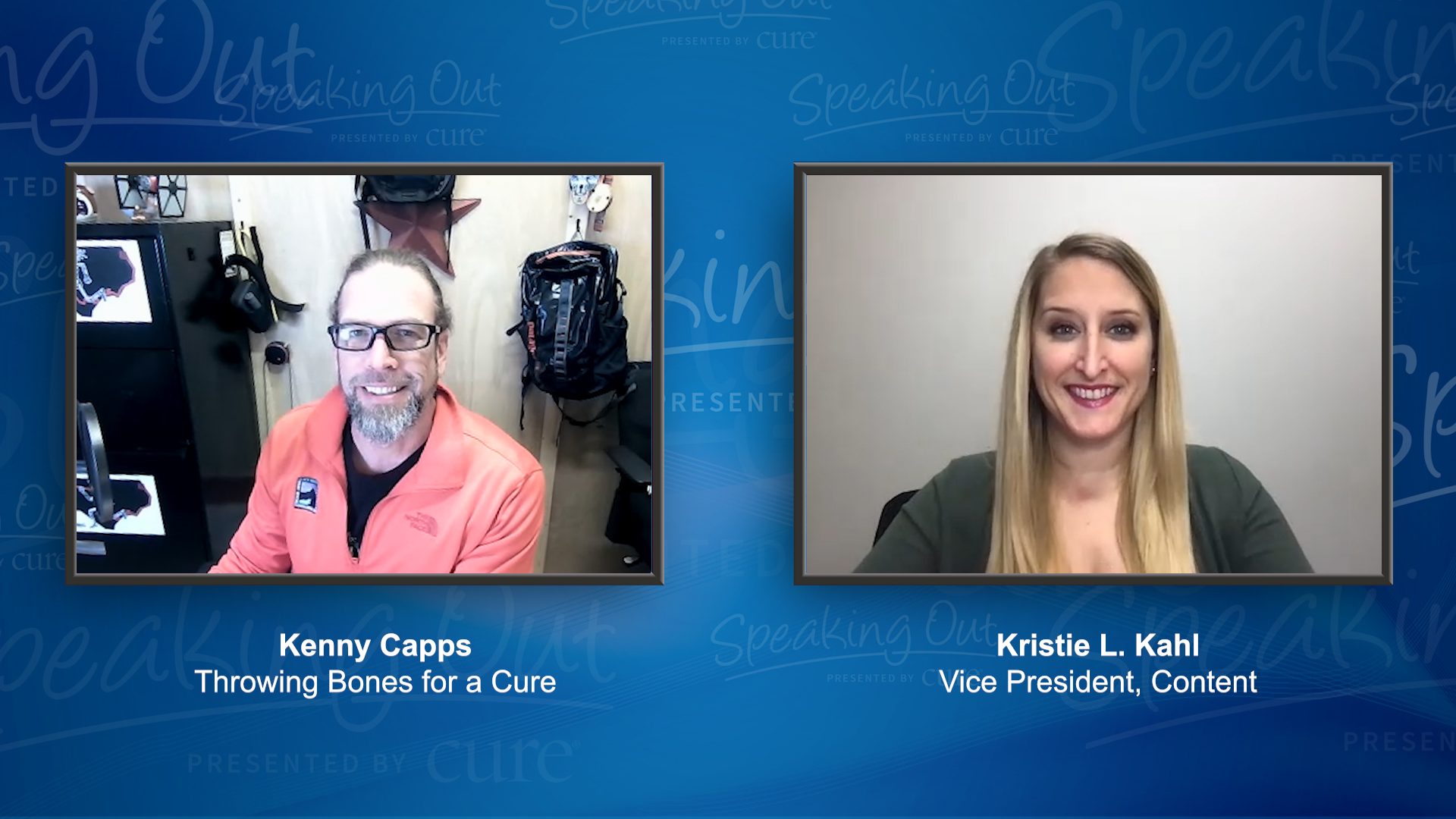- About Us
- Advertise / Support
- Editorial Board
- Contact Us
- CancerNetwork.com
- TargetedOnc.com
- OncLive.com
- OncNursingNews.com
- Terms & Conditions
- Privacy
- Do Not Sell My Information
- Washington My Health My Data
© 2025 MJH Life Sciences™ and CURE - Oncology & Cancer News for Patients & Caregivers. All rights reserved.
Why It’s Important to Collaborate Through Communication in Myeloma

Kristie L. Kahl is vice president of content at MJH Life Sciences, overseeing CURE®, CancerNetwork®, the journal ONCOLOGY, Targeted Oncology, and Urology Times®. She has been with the company since November 2017.
As part of its “Speaking Out” video series, CURE® spoke with Throwing Bones founder Kenny Capps about the importance of patient-physician communication during a myeloma journey.
With a variety of treatment options available across the different stages of multiple myeloma, it is vital for patients to not only work collaboratively with their care teams to determine which option is best for them, but to also seek such care from a group of disease specialists.
Through the mission of raising awareness, promoting education and inspiring others through fitness and health to combat blood cancers, Throwing Bones aims to help patients with myeloma navigate their journey with the disease. Founder and executive director Kenny Capps sat down with CURE® to explain the importance of patient-physician communication, how patients can be their own best advocates and why seeking a myeloma specialist is important.
CURE®: Can you explain why patient-physician communication is key when it comes to a patient’s journey with myeloma?
Capps: One of the biggest challenges that health care providers in general, but certainly your diagnosing oncologist, have is being able to understand exactly what the patient is going through. Sure, they can do blood work, they can do different types of scans, they can check you out from stem to stern. But sometimes it’s hard to know exactly what’s going on unless you’re able to verbalize it.
And I understand that as a patient, sometimes it’s difficult to understand what’s going on. But at least, if you can communicate how you’re feeling and what’s happening in that moment, they can make decisions that actually better serve you. And then it introduces treatment options (or) caring for you in a different way. Maybe it’s leading you to a different health care provider in order to handle some of those symptoms or the responses to the current treatment.
How does this collaboration play a role in patients being their own best advocate when it comes to their care and their treatment decisions?
You really need to be invested fully in yourself. And that’s tough, because it’s an overwhelming experience in a lot of ways. For one thing, it’s new. And the other thing is that it’s a really serious topic. It’s something where it’s life changing in a lot of ways, and so that information is tough to actually take in all at once; however, you are the one who is best suited to communicate with others, even if it’s just to your caregiver, what’s going on with you. Which means that you need to basically understand the premise of your disease, what it is that you have, what could be showing up, and also, at least in a very general way, what options are available to you. But you have to be your own advocate in order to do that.
As a part of this communication, why is it key for a patient with myeloma to make sure that they’re seeing a myeloma specialist?
Myeloma is an interesting blood cancer, because there hasn’t been (historically) as much research over the past, say, two, three decades. Within the past 10 years, the amount of changes that has happened within the myeloma landscape has been phenomenal. And so, it changes quickly.
And although more and more people are becoming aware of (myeloma), it still isn’t as common as some of the cancers that most of us are familiar with, say, you know, breast cancer or prostate cancer, (diseases) that typically are more common. And so there’s not as much need to have a specialist in every community (with the more common cancers). Which means that there are lots of oncologists probably in your community or near your medical center that focus on blood cancers, but not necessarily specific to myeloma. So they’re not aware of the latest updates and trends that we’re heading towards, the things that are necessary in order to get you to your next best place. And so having a specialist, someone who focuses solely on multiple myeloma, I believe is essential to the right treatment for almost every patient.
For more news on cancer updates, research and education, don’t forget to subscribe to CURE®’s newsletters here.
 Download Issue : CURE® Multiple Myeloma 2022 Special Issue 1
Download Issue : CURE® Multiple Myeloma 2022 Special Issue 1Related Content:




